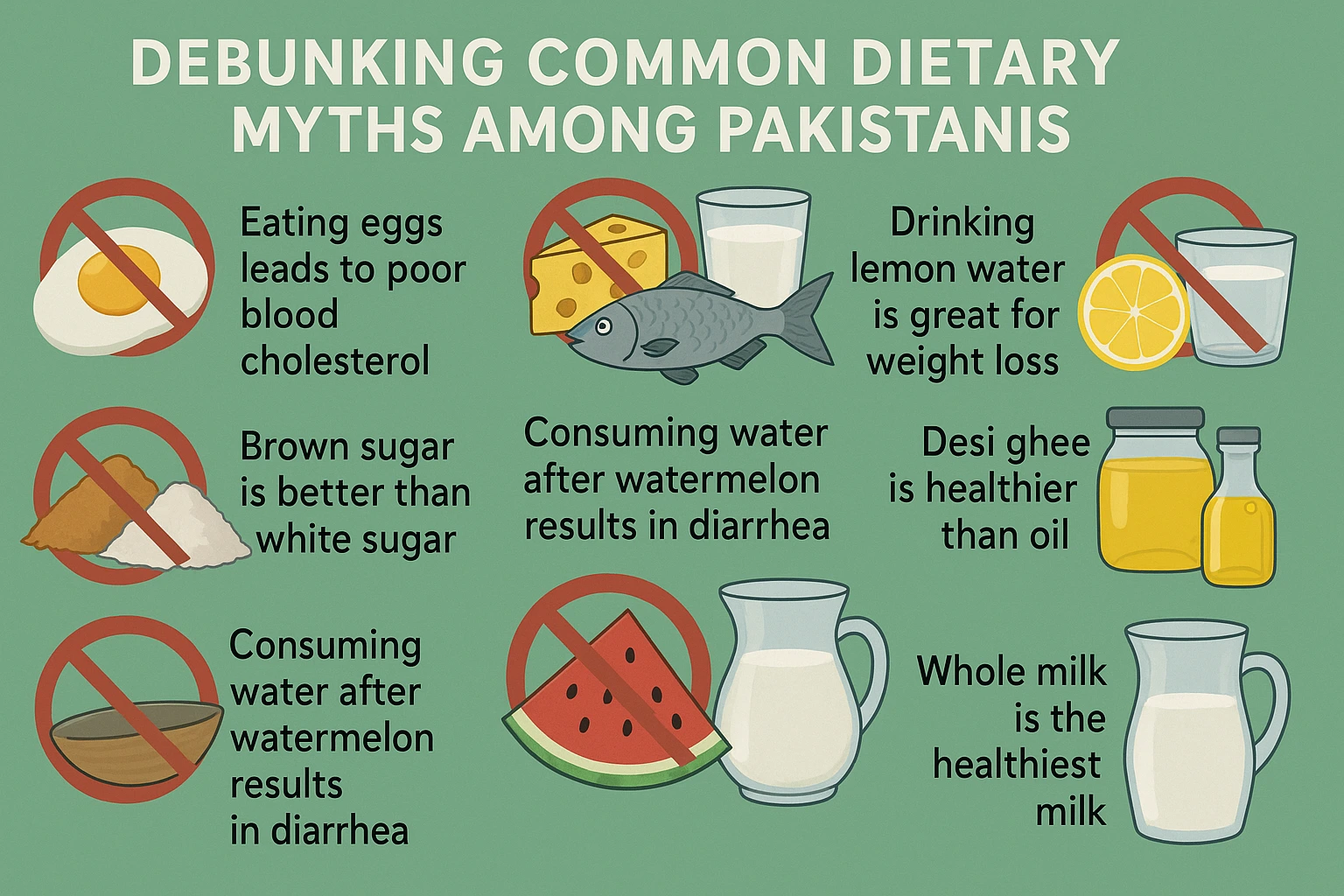Food is more than just fuel for us Pakistanis. It is our tradition, our emotions, and our identity. No doubt, our rich food heritage should be preserved and celebrated, but with advancements in human science, we should also be aware of what’s true and what’s not when it comes to the nourishment of the body. Growing up in a Pakistani household, our mothers and grandmothers would swear by these tales that we never understood why exactly. While these came from a place of love and care, we should uncover if they hold any scientific meaning behind them. This article is about clearing the misinformation and food myths that Pakistanis have regarding food through evidence-based research and scientific reasoning, instead of fake news and urban legend.
Eating Eggs Leads to Poor Blood Cholesterol
For years, eggs have had a bad reputation when it comes to their cholesterol content. It is true that eggs contain dietary cholesterol but it has minimal impact on blood cholesterol. The recommended daily amount of dietary cholesterol consumed is 200 mg, whereas the liver itself produces 800–1500 mg naturally on a day-to-day basis, making the dietary cholesterol negligible. The real culprits behind unhealthy cholesterol are saturated fats and trans fats. Eggs are actually a powerhouse of nutrients and moderate egg consumption (1 a day) contributes to a healthy body.
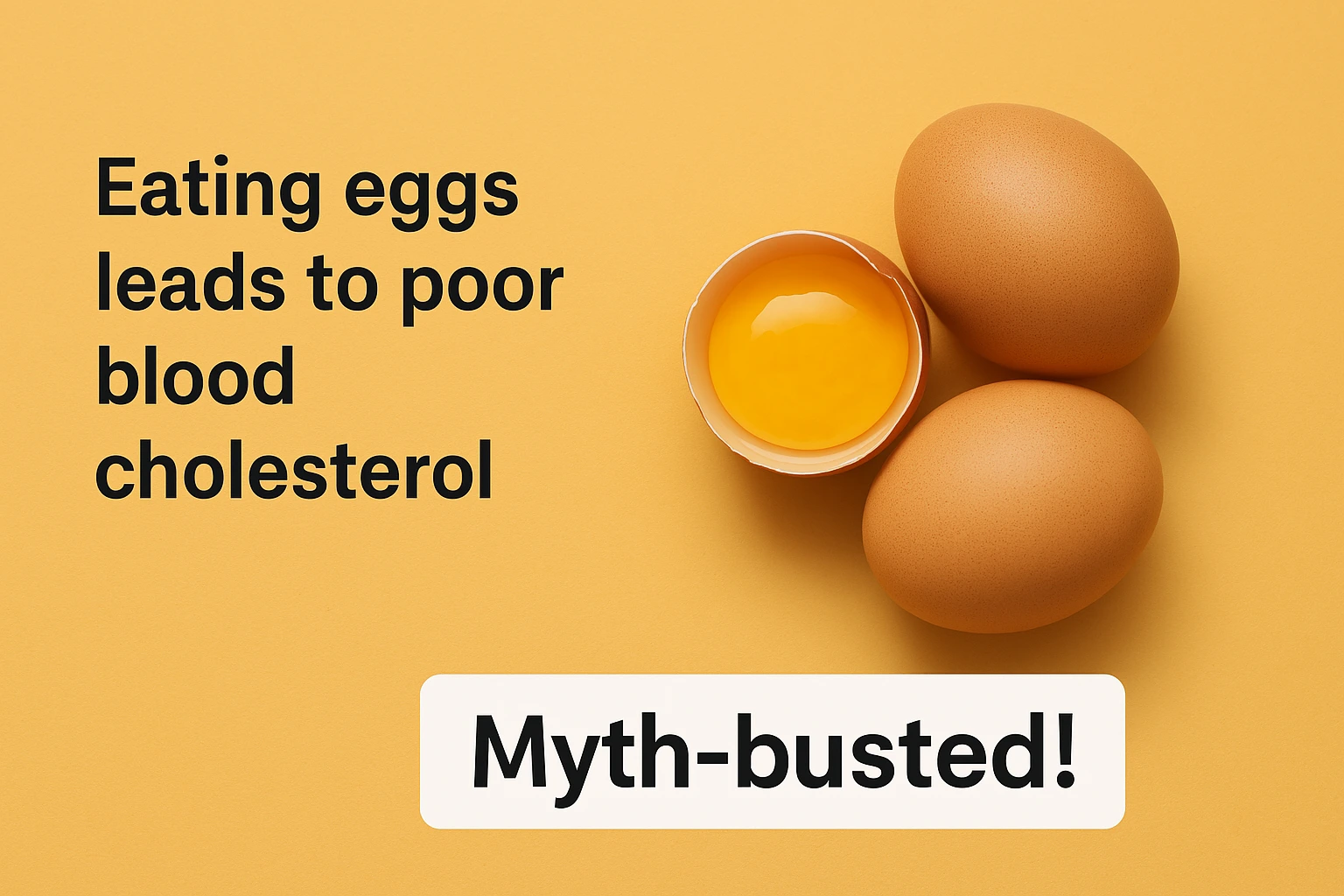
Consuming fish and dairy products one after another leads to skin problems like vitiligo
This is one of the major deeply rooted myths in Pakistan. There is no scientific evidence that correlates the consumption of fish and dairy together to vitiligo or any sort of skin condition. Vitiligo is an autoimmune disorder, hence has no relation to food intake. Both are excellent sources of proteins and nutrients. Food science supports that these two can be safely eaten together without any harm to skin or health.
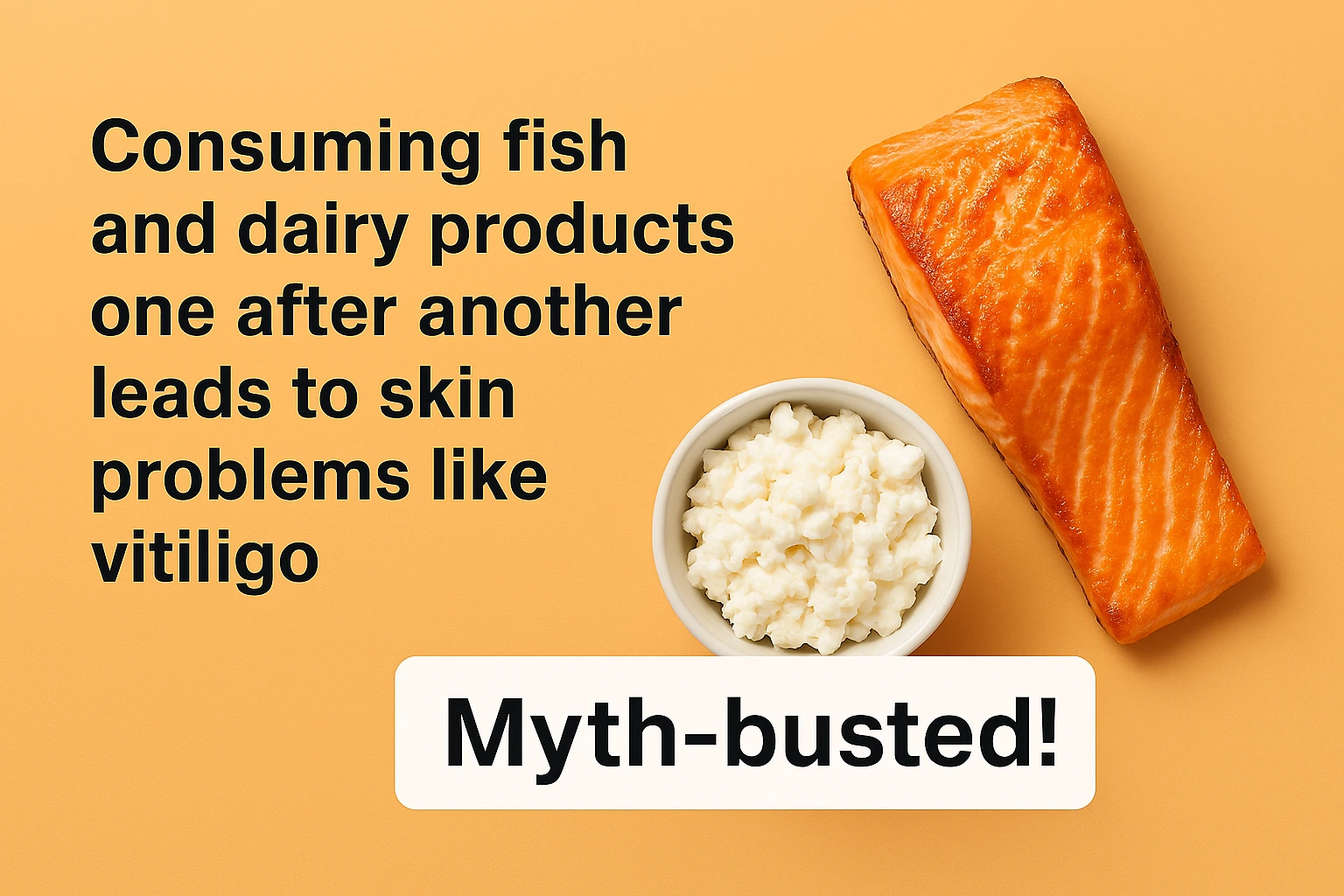
Drinking lemon water is great for weight loss
Lemon water is low in calories, refreshing, and contains some vitamin C, but it is not fat-burning. This myth primarily comes from the trend of detox drinks. No drink solely can melt away fat. Sustainable weight loss comes from a consistent calorie deficit through balanced eating, partnered with physical activity. Lemon water can be a healthy choice, but it is not a free ticket for weight loss.
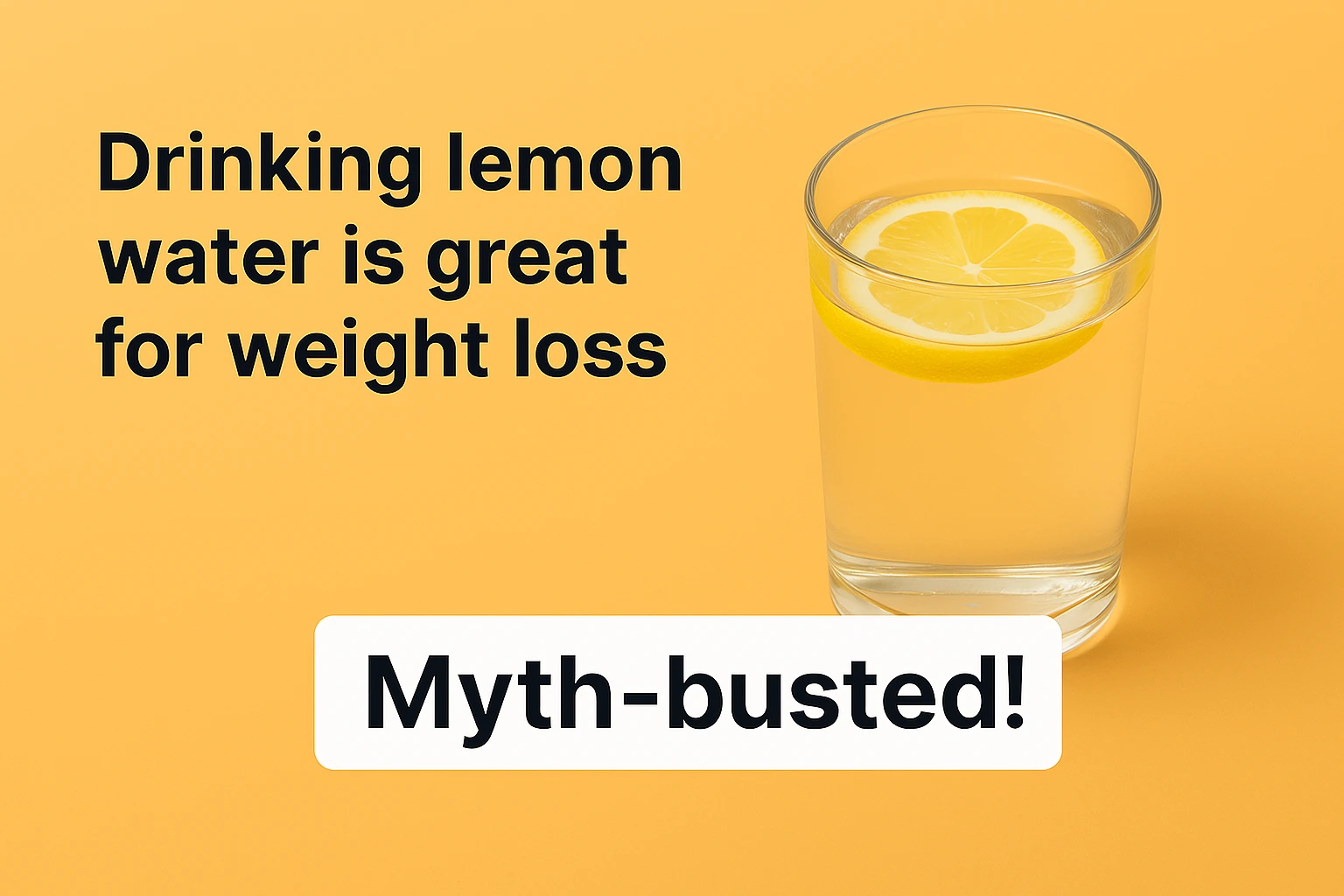
Brown sugar is better than white sugar
This myth comes from the idea that brown sugar is seen as “less processed” or more “natural”. In reality, both white and brown sugar are almost identical when it comes to their caloric content and impact on blood sugar levels. Brown sugar is just white sugar with a small amount of molasses added back, contributing to that rich taste and dark colour. While brown sugar does contain calcium and potassium, the quantities are so minute that they offer no health benefits. From a health perspective, both should be consumed in moderation.
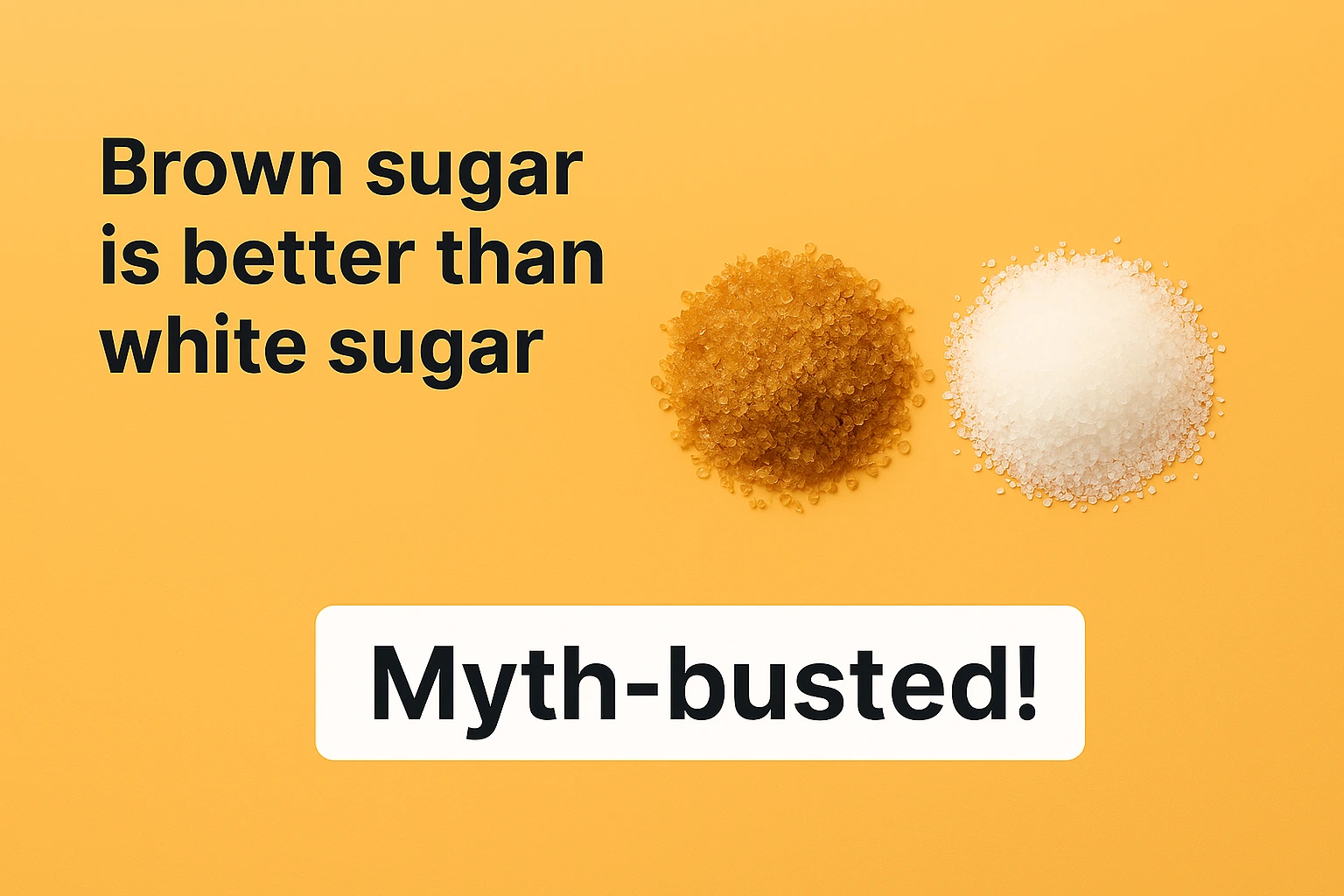
Consuming water after watermelon results in diarrhea
This myth likely stems from the thought that diarrhea is liquid stool, as watermelon is approximately 92% water, so if an individual drinks a large amount of water along with it, it would lead to diarrhea. However, this is not the case. If someone experiences stomach problems, it could be due to overconsumption or contaminated fruit—not the water itself. Scientifically, the digestive system can handle both without any issue. Clean, ripe watermelon and clean water are both perfectly safe together.
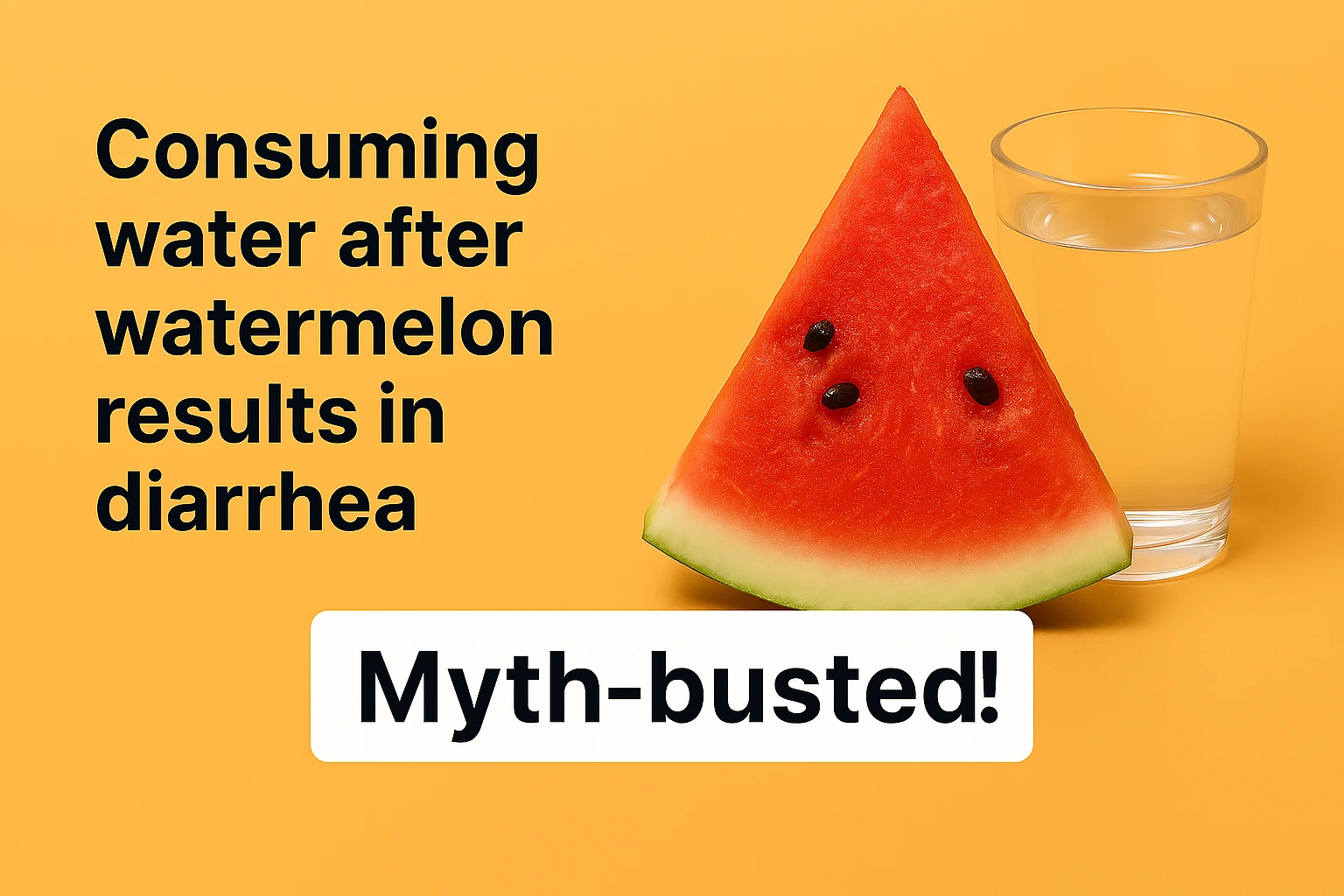
Desi ghee is healthier than oil
This is a very common debate in Desi households. Undoubtedly, ghee has its benefits—it contains fat-soluble vitamins (A, D, E, and K) and butyrate, which supports gut health. However, it is still a saturated fat, and excessive intake can increase LDL (bad cholesterol) levels, which do not have a good impact on one’s heart health. On the other hand, oils like olive, canola, and peanut oil are rich in unsaturated fats, which are heart-friendly. The key is balance: use ghee in moderation, choose healthy oils for daily cooking to create a better fat profile in your diet.
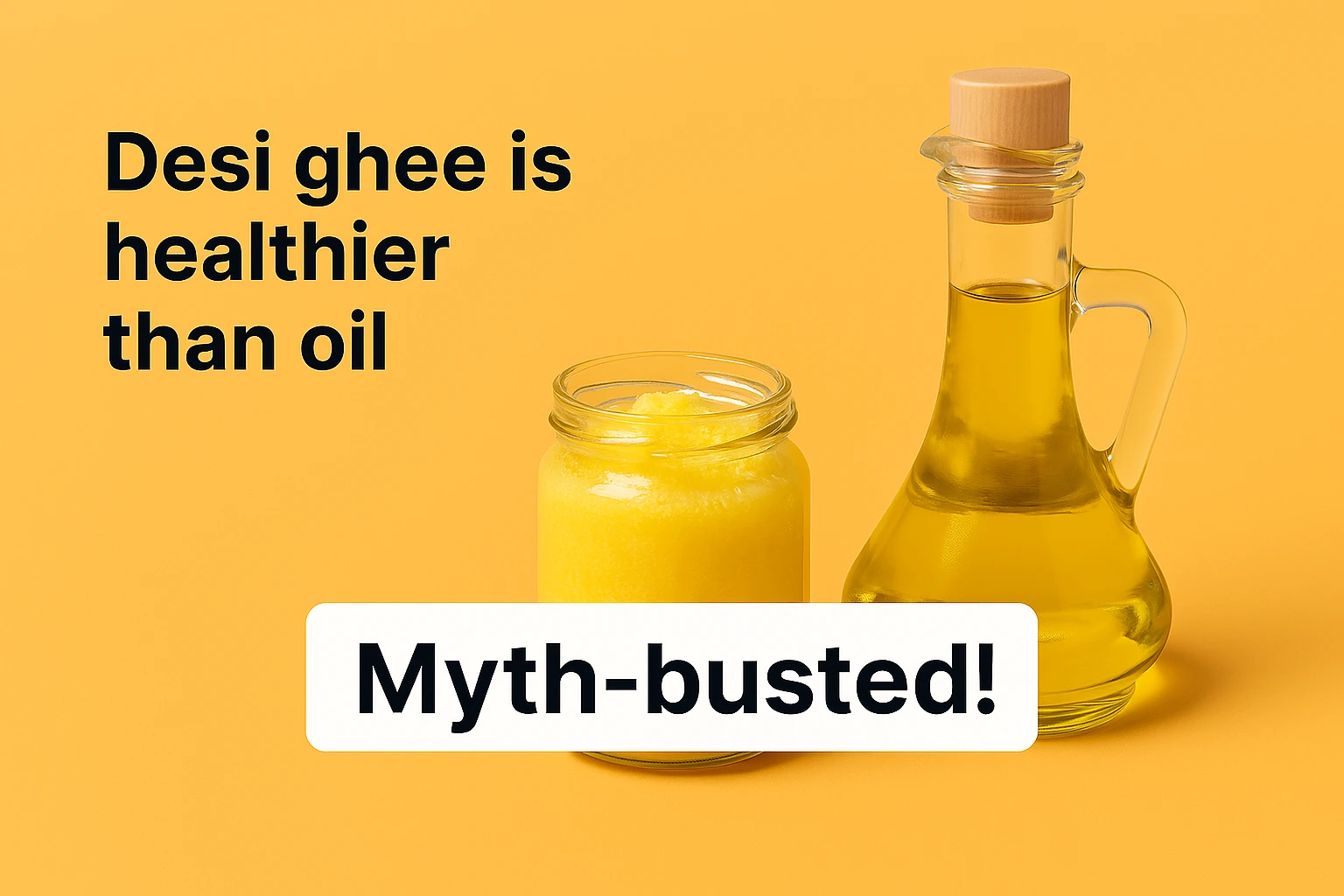
Whole milk is the healthiest milk
Whole milk is praised for being natural and nutrient-rich, which it is, but “healthiest” is subjective and depends on the needs of an individual. Whole milk contains more calories and saturated fat than low-fat milk or skimmed milk.
- 100 ml of whole milk has 3.5g of fat
- 100 ml of skimmed milk has 0.3g of fat
This makes whole milk not ideal for people managing weight or heart health. However, for children and underweight individuals, whole milk can be beneficial. So, the healthiest milk is the one that aligns with the nutritional requirements of the body.
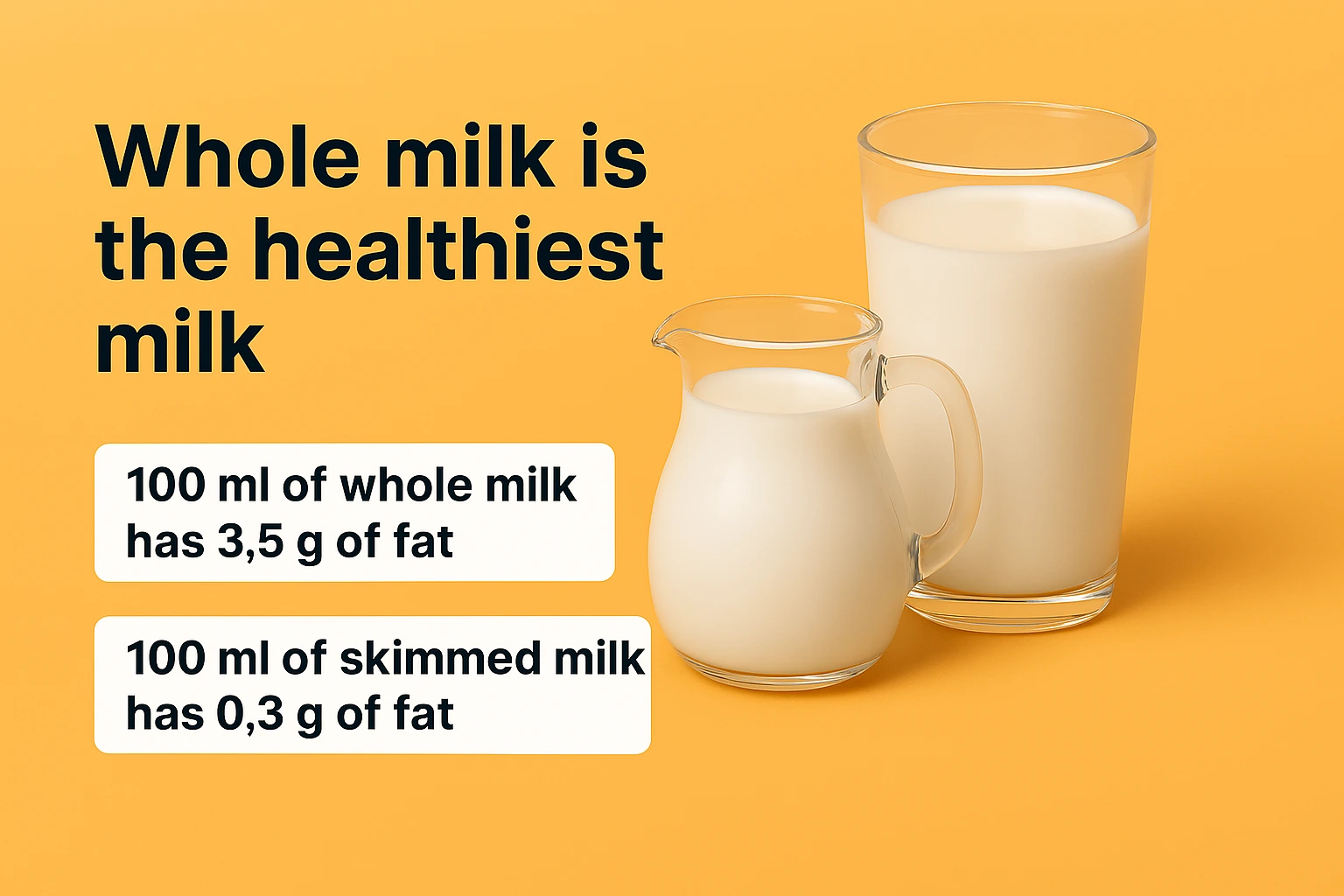
The human body is extremely complex; one should not blindly listen to others when it comes to the nourishment of the body. While family and culture are undoubtedly important, it is also crucial to take science and reasoning along with it. When it comes to creating a healthy lifestyle, one should always take a holistic approach. Create a balance, be consistent, and listen to your body.
So next time you hear a comment about food or a viral totka, take a moment to pause, question it, do your due diligent research and then come to a smart consensus. In a world full of lies, choose to be informed—because your health matters. When you protect your health, you protect your power, your peace and your purpose.

